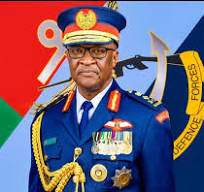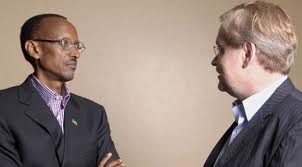At the moment, the bar for taking extremists out of circulation is set ridiculously high. People known for their own extremism that reaches pre-terrorist levels should not be walking the streets when they have expressed support for Islamic State (ISIS) or tried to head to Syria or called for the destruction of Britain and other democracies or allied themselves to people already in prison. Their demand for free speech or freedom of belief must never be elevated above the rights of citizens to live safely in their own towns and cities. It is essential for parliament to lower the bar.
Is this to be the political landscape for the future, where groups of people demanding death and destruction are given the freedom of the streets whilst those wishing to hold a peaceful celebration are prevented from doing so?
To see extremist Islam as a “perversion” of Islam misses an important point. The politically correct insistence that radical versions of Islam somehow pervert an essentially peaceful and tolerant faith forces policy-makers and legislators, church leaders, rabbis, interfaith workers and the public at large to leave to one side an important reality. Flatly, Islam in its original and classic forms has everything to do with today’s radicals and the violence they commit. The Qur’an is explicit in its hatred for pagans, Jews and Christians. It calls for the fighting of holy war (jihad) to conquer the non-Muslim world, subdue it, and gradually bring it into the fold of Islam. Islam has been at war with Europe since the seventh century.
On the Sunday morning after the terrorist attacks in London the night of June 3, British Prime Minister Theresa May addressed the nation in a powerful speech. It deserves to be read in full, but several points stand out and call for a response.
We cannot and must not pretend that things can continue as they are. Things need to change and they need to change in four important ways.
First, while the recent attacks are not connected by common networks, they are connected in one important sense. They are bound together by the single evil ideology of Islamist extremism that preaches hatred, sows division and promotes sectarianism.
It is an ideology that claims our Western values of freedom, democracy and human rights are incompatible with the religion of Islam.
Lower down, she enhances that by saying:
Second, we cannot allow this ideology the safe space it needs to breed. Yet that is precisely what the internet, and the big companies that provide internet-based services provide.
No one who has watched the endless stream of radical Muslim preachers who appear on YouTube or who post extremist, anti-Western, anti-democratic, or anti-Semitic opinions on Facebook would object to May’s stricture. But given earlier attempts to rein in the providers of so many internet spaces in a demand for better scrutiny and the removal of radicalizing material from their sites, we must remain pessimistic about how far May or any other Western leader can bring effective pressure to bear. Without strong financial disincentives, these rulers of the internet will pay little heed to the concerns of the wider public and our security services.
Perhaps May’s strongest statement comes some lines later:
While we have made significant progress in recent years, there is — to be frank — far too much tolerance of extremism in our country. So we need to become far more robust in identifying it and stamping it out across the public sector and across society. That will require some difficult, and often embarrassing, conversations.
Here, she puts her finger on the most sensitive yet compelling reason for our vulnerability. The democracies have been and still are weakened by the very things that in other contexts give us strength. May speaks rightly of our “pluralistic British values”. But those values include freedom of speech, freedom of religion, open-mindedness, and tolerance — things that are not held as desirable values in any Muslim country. Such values are key to our survival as free and tolerant people unrestricted by any overarching ideology. Yet May is right. Even toleration has its limits. While allowing Muslims to live in our societies with full freedom to live their lives according to the tenets of their faith is desirable expression of our openness and love for humanity, we have been tolerant of radical Islam and even traditionalist and conservative Islam where it leads into radicalization and an extremism that erupts in physical assaults, fatalities, and, as intended, widespread public fear.
For years, we have known the identities of radical Islamic preachers and extremist organizations, but we have allowed them to bring their hatred for us onto university and college campuses, into mosques and Islamic centres, and even onto our streets, where they set up stalls to speak and hand out literature. Scroll down here or here to find long lists of radical individuals and organizations, few of which have even been banned. Few terrorist suspects have ever been deported. In a Telegraph article from 2015, one reads:
Here is an astonishing figure to mull over. In the past 10 years, the UK has deported just 12 terrorism suspects from its shores under its Deportation with Assurances (DWA) scheme. In the same period, France deported more than 100 more. The British figures come from a review of the DWA programme that is unlikely to be published until after the general election. It suggests, as we have always suspected, that the UK remains a soft touch for foreign-born jihadists.
It took eight years, 15 court cases and a £25 million bill to keep the hate preacher and terrorist fighter Abu Hamza and his huge family in the UK before he was finally deported (to the United States) in 2012, where he was sentenced to life imprisonment. In that same year, Theresa May (then Home Secretary) was frustrated because another sinister figure, Abu Qatada, could not be deported to Jordan because the European Court of Human Rights had ruled against it for fear of his being tortured there. But in 2013, once Jordan agreed not to do so, he was sent there only to be tried and set free. Last year, he used Twitter to urge Muslims to leave the UK for fear of persecution and “bloodshed” — a possible encouragement to would-be jihadis to head abroad. May spoke vehemently against the Strasbourg ruling:
It is simply isn’t acceptable, that after guarantees from the Jordanians about his treatment, after British courts have found that he is dangerous, after his removal has been approved by the highest courts in our land, we still cannot deport dangerous foreign nationals.
…
The right place for a terrorist is a prison cell. The right place for a foreign terrorist is a foreign prison cell far away from Britain.
We constantly undermine ourselves by our need to be principled. This is an ongoing problem in politics. Jeremy Corbyn, leader of Britain’s Labour Party, is frequently described as a man of principle, and in many ways that judgement seems fair. Certainly, he has stuck by his socialist principles even if they have led him to adopt positions not well aimed at creating security for Britain. He has supported the IRA; refused many times to condemn their terrorist attacks; has called Hamas and Hizbullah his “friends” and invited their representatives to the British parliament. If that were not enough, he has boasted of his opposition to every piece of anti-terrorist legislation parliament has tried to pass.
In a 2015 interview just shown by the tabloid newspaper The Sun, Corbyn spoke with the Bahrain-based LuaLua Television. Although The Sun is not a reliable source, the clip from the interview shows Corbyn speaking in English with an accurate Arabic translation in subtitles. The interviewer speaks in Arabic. What are alarming are Corbyn’s statements, including a criticism of the UK government laws preventing would-be fighters who have travelled to Syria and from returning to the UK:
The British government’s response has been to try to make it impossible for them to travel, to restrict their ability to travel, to take upon themselves the ability to remove passports and, strangely, to deny people the right of return – which is legally a very questionable decision.
Surely no responsible politician would want to make it easy for jihadi fighters to come and go between Syria and the UK, especially while Islamic State is encouraging jihadis who leave to go back to European countries to carry out acts of terror — which seems to be exactly what has been happening.
In 2002, Corbyn addressed a large anti-Israel rally in London attended by Hizbullah supporters, several radical preachers including Abu Hamza, and 300 members of al-Muhajiroun, a banned extremist organization. According to one left-wing newspaper:
None of these groups called (openly at least) for the destruction of the state of Israel. It was a different story though for the ultra-reactionaries of such organisations as Al Muhajiroun, who held placards reading, “Palestine is muslim”. They chanted, “Skud, Skud Israel” and “Gas, gas Tel Aviv”, along with their support for bin Laden. Two would-be suicide posers were dressed in combat fatigues with a ‘bomb’ strapped to their waists. This section accounted for no more than 200-300, but they made a noise far out of proportion to their numbers.[1]
Stories concerning Corbyn’s support for jihadis was plastered on the front pages of several newspapers one day before the general election on June 8. He may never take charge of our national security, but following the results of the election, which proved disastrous for May and her Conservative party, it is now not entirely unimaginable that he may yet form a minority government. Overconfidence in her party’s strength, a hardline stance on Brexit, and a lack of concern in her Manifesto for public sensitivities concerning the National Health Service, social care and pensions led May to lose the confidence of much of the public, especially some, such as the elderly, who were traditional Tory voters. The campaign she ran turned out to be very badly handled. The two advisers who worked on it have just resigned, and large numbers of citizens, including 60% of Conservatives, are calling on her to resign. She no longer commands the large parliamentary majority of which she was so sure when she called the election, in fact she has no majority at all without pairing with the backward-looking Democratic Unionist Party, founded by bigoted Ian Paisley in 1971 and now the largest party in Northern Ireland. Many predict that the alliance will soon founder.
Whoever remains in power in coming months, the threat of terrorism has risen to the top of the agenda as a public preoccupation. Except that almost nobody talked much about it in the days after the London Bridge attack leading up to the election. Alarmingly, large numbers of young people rushed to vote for the leader of the one party that will do the least to combat that threat. The abolition of student fees or other right-on issues mattered so much more. And yet, in a matter of months, the British people have grown frightened of a beast our political correctness and laxity helped create, a Frankenstein monster that has risen from its slab and shows no signs of lying back down again. This beast has, in a few fell swoops, changed the nature of politics in Britain as it has elsewhere.
Jeremy Corbyn is the last person to whom we should entrust our future safety, yet he is now in a position to water down or cancel any legislation that might ensure more preparedness and better control. Theresa May, whatever her political disaster, has at least promised firmness in our relations with the Muslim community, identifying the problem and calling for action.
That promise of action is exemplified in her statements that:
If we need to increase the length of custodial sentences for terrorist-related offences — even apparently less serious offences — that is what we will do. Since the emergence of the threat from Islamist-inspired terrorism, our country has made significant progress in disrupting plots and protecting the public. But it is time to say “Enough is enough”.
On June 6, addressing party supporters in Slough, and again speaking about resistance to terrorism, she went farther, saying:
I mean longer prison sentences for those convicted of terrorist offences.
I mean making it easier for the authorities to deport foreign terrorist suspects back to their own countries.
And I mean doing more to restrict the freedom and movements of terrorist suspects when we have enough evidence to know they are a threat, but not enough evidence to prosecute them in full in court.
And if our human rights laws get in the way of doing it, we will change the law so we can do it.
Clearly, not even May can ride roughshod over essential human rights values and legislation, things put in place to protect the public. Now, with Corbyn looking over shoulder, tough and measured action is in jeopardy. It is clear nonetheless that an excessive concern for the rights of dangerous individuals and hostile communities has served to take away vital protections for the lives of British citizens. This misguided generosity is linked to a growing worry that we have been too relaxed about individuals who have later gone on to commit atrocities in our midst. Salman Abedi, the suicide bomber who murdered 22 concert-goers, including several children, during an Ariane Grande concert in Manchester, had been reported to the authorities no fewer than five times, yet had been allowed to walk free enough to take forward his mission to kill and maim.
Youssef Zaghba, one of the three attackers on London Bridge and Borough Market on June 3, had been stopped in Bologna in 2016 carrying terrorist literature while trying to fly to Istanbul en route for Syria. He told officers “I am going to be a terrorist”, was arrested but later released. His name was flagged on an international terrorism database and the Italian authorities notified the British security services. Allowed to go to the UK, he helped kill seven people and injure more.
Even more alarmingly, his accomplice, Khuram Butt, a Pakistani-born British man, was well above the horizon. He had been reported to the security services and was alleged to have been an associate of Anjem Choudary, a radical preacher now serving time in jail for his support for Islamic State. Butt had defended Choudary by calling a Muslim opposed to the preacher an apostate (murtadd); and in 2016, he had appeared in a Channel 4 television documentary where he was seen with others in a park holding an ISIS flag and at two events attended by radical preachers who had been arrested for radicalizing others. One of those preachers, Mohammed Shamsuddin, has said: “Our message is deadly, we are calling for world domination, and for Sharia for the UK.”
In 2015, MI5, the UK’s domestic intelligence service, stated that it had 3,000 extremists on its watchlist. According to Business Insider:
There are 6,000 employees at GCHQ and 4,000 at MI5. But there are up to 3,000 terror suspects in the UK. At the French ratio, you would need 60,000 officers to track them all. That’s almost half of Britain’s total number of police officers, 127,000.
What this means, in effect, is that thousands of potential terrorists are left free to live with little interference from the police or MI5. Raising the number of police, as Jeremy Corbyn demands, would place a heavy strain on the economy of a country sailing into uncharted waters as it leaves the EU. The answer must be, as May suggests, a different approach to human rights legislation. At the moment, the bar for taking extremists out of circulation is set ridiculously high. People who are known for their own extremism that reaches pre-terrorist levels should not be walking the streets when they have expressed support for Islamic State or tried to head to Syria or called for the destruction of the UK and other democracies or allied themselves to people already in prison. Their demand for free speech or freedom of belief must never be elevated above the rights of citizens to live safely in their own towns and cities. It is essential for parliament to lower the bar.
That the police and security services are avoiding any real confrontation with Islamists is clear from the contents of this letter, sent on June 7 to the Daily Mail by pro-Israel activist Clive Hyman. It makes troubling treading:
On 18th June, Muslims will be holding a march in central London to celebrate Al-Quds Day. In previous years these marches have called for the destruction of Israel and death to the Jews, and the marchers have carried signs to this effect and flags supporting Hamas, Hezbollah and ISIS. Despite requests from both the Christian and Jewish communities for this march to be cancelled because of the violence it will incite amongst those participating and their followers, Mayor Khan and the Metropolitan police have refused to do so, their reason being that there has been no violence at these marches in previous years.
By comparison, an event to honour Israel organised by Christians United for Israel for 22nd June has been cancelled apparently because Mayor Khan and the Metropolitan Police cannot guarantee the safety of those who wish to attend.
Is this to be the political landscape for the future, where groups of people demanding death and destruction are given the freedom of the streets whilst those wishing to hold a peaceful celebration are prevented from doing so?
As might be expected, leftists have rejected May’s appeal for changes in human rights legislation. They argue that she will need to declare a state of emergency, something that can only be invoked when the life of the nation is under threat. This is not incorrect, since all democracies have to avoid potential dictators using changes in the law to give themselves powers they might not otherwise have. But that is not the whole story.
What May plans to do will take us far, but not far enough. Her weakness, set against Corbyn’s show of strength, undermines the likelihood of any serious changes to how Britain tackles the Islamic threat. Bit by bit, the political fear of appearing xenophobic or “Islamophobic” will reassert itself. Labour will make sure of that. Members of parliament with substantial numbers of Muslim constituents will answer calls to water down any legislation that can be labelled as discriminatory to Muslims. It is only when we come to terms with the fact that terrorist attacks are not being carried out by Christians, Jews, Hindus, Buddhists, Baha’is, Quakers or the members of any religion except Islam.
Regrettably May herself fell into a politically-correct trap in her speech, when she said in reference to Islamic radicalism, “It is an ideology that is a perversion of Islam and a perversion of the truth.” It is easy to see what she means by this — that she wants to distance radicalism and terrorism from the majority of decent Muslims in the UK, the ones like Sara Khan who work to create a British Islam based on the best Islamic values in alliance with the British values May rightly extols. However, to see extremist Islam as a “perversion” of Islam misses an important point. The politically correct insistence that radical versions of Islam somehow pervert an essentially peaceful and tolerant faith forces policy-makers and legislators, church leaders, rabbis, interfaith workers and the public at large to leave to one side an important reality. If not tackled head-on, that reality will not go away.
In a June 3 speech, British Prime Minister Theresa May regrettably fell into a politically-correct trap, when she said in reference to Islamic radicalism, “It is an ideology that is a perversion of Islam and a perversion of the truth.” (Photo by Hannah McKay/Pool/Getty Images)
Flatly, Islam in its original and classic forms has everything to do with today’s radicals and the violence they commit. The Qur’an is explicit in its hatred for pagans, Jews, and Christians. It calls for the fighting of holy war (jihad) to conquer the non-Muslim world, subdue it, and gradually bring it into the fold of Islam. Muhammad himself led his followers into battle and sent out expeditions out of Arabia before his death in 632. The astonishing Islamic conquests that followed in the Middle East, Europe, and far beyond into Central Asia and India turned a swathe of territories into Islamic fiefdoms, and most of these remain under Muslim rule today. The Ottoman Turkish conquest of Constantinople in 1453 not only destroyed the Eastern Orthodox Roman Empire (the Byzantine Empire), but is still regarded by Muslims as a turning point in the history of the world. The subsequent Ottoman conquests across eastern Europe were only halted when the King of Poland John III Sobieski (1629-1696) defeated a massive Turkish army under the command of Sultan Soleiman I outside the city of Vienna.
In 2015, after Islamist attacks in Paris, French president François Hollande declared that “We are in a war against terrorism, jihadism, which threatens the whole world.” But Islam has been at war with Europe since the seventh century. The beheadings, crucifixions, massacres and demolitions of towns and churches carried out by Islamic State today are replicas of wider atrocities carried out by the Muslim conquerors of Spain in the 8th century.[2]
Jihad wars against the Byzantines were carried out twice a year. Spain and Portugal were occupied for centuries until the Christian kingdoms of the north drove the Muslims out, in a process that itself took some centuries. The Ottomans continued to be a threat down to their defeat in the First World War. From the sixteenth to late eighteenth centuries, the Muslim slavers, known as the Barbary pirates, dominated the Mediterranean and took more than a million Christian slaves to North Africa. In the nineteenth century, jihad wars against European colonists were frequent.[3] Today, Europeans and others are fighting wars against Islamic radicals from Afghanistan to Iraq to Syria, and on the streets of our own cities.
To be at war is justification for extreme measures. Deportation and internment are unattractive, just as the measures Western countries have been forced to take against their enemies in other wars. But set next to the threat of unending terror in our cities, and given the nature of the people we will deport or intern, they are probably not as bad as the alternative. We will not execute terrorists (just as Israel has never executed the thousands of terrorists who have murdered its citizens) nor torture them or harm their families. Minor adjustments to our human rights laws and the lowering of the bar a bit on what we consider unacceptable are all we need. But that will not stop Jeremy Corbyn and his terrorist-supporting friends crying that such measures will be a “slippery slope” that will set back community relations by decades.

















 Muri iyo nama yabeye ku wa 15 Nzeri biyemeje ko bagiye gukemura icyo kibazo cy’imbago z’igihugu cy’uRwanda aho zageraga nyuma y’inama yabereye mu gihuhu cy’Ubudage mu w’1911 mu murwa mukuru w’icyo gihugu Berlin.Komisiyo yavuze ko,bigaragara ko,imbago zaho uRwanda rwageraga zagiye zisibama,ariko na none bivugwa ko,hakurikijwe ikarita yicyo gihe ishobora gufasha ibihugu byombi kumenya neza aho imbago z’uRwanda zagarukiraga.
Muri iyo nama yabeye ku wa 15 Nzeri biyemeje ko bagiye gukemura icyo kibazo cy’imbago z’igihugu cy’uRwanda aho zageraga nyuma y’inama yabereye mu gihuhu cy’Ubudage mu w’1911 mu murwa mukuru w’icyo gihugu Berlin.Komisiyo yavuze ko,bigaragara ko,imbago zaho uRwanda rwageraga zagiye zisibama,ariko na none bivugwa ko,hakurikijwe ikarita yicyo gihe ishobora gufasha ibihugu byombi kumenya neza aho imbago z’uRwanda zagarukiraga.



















